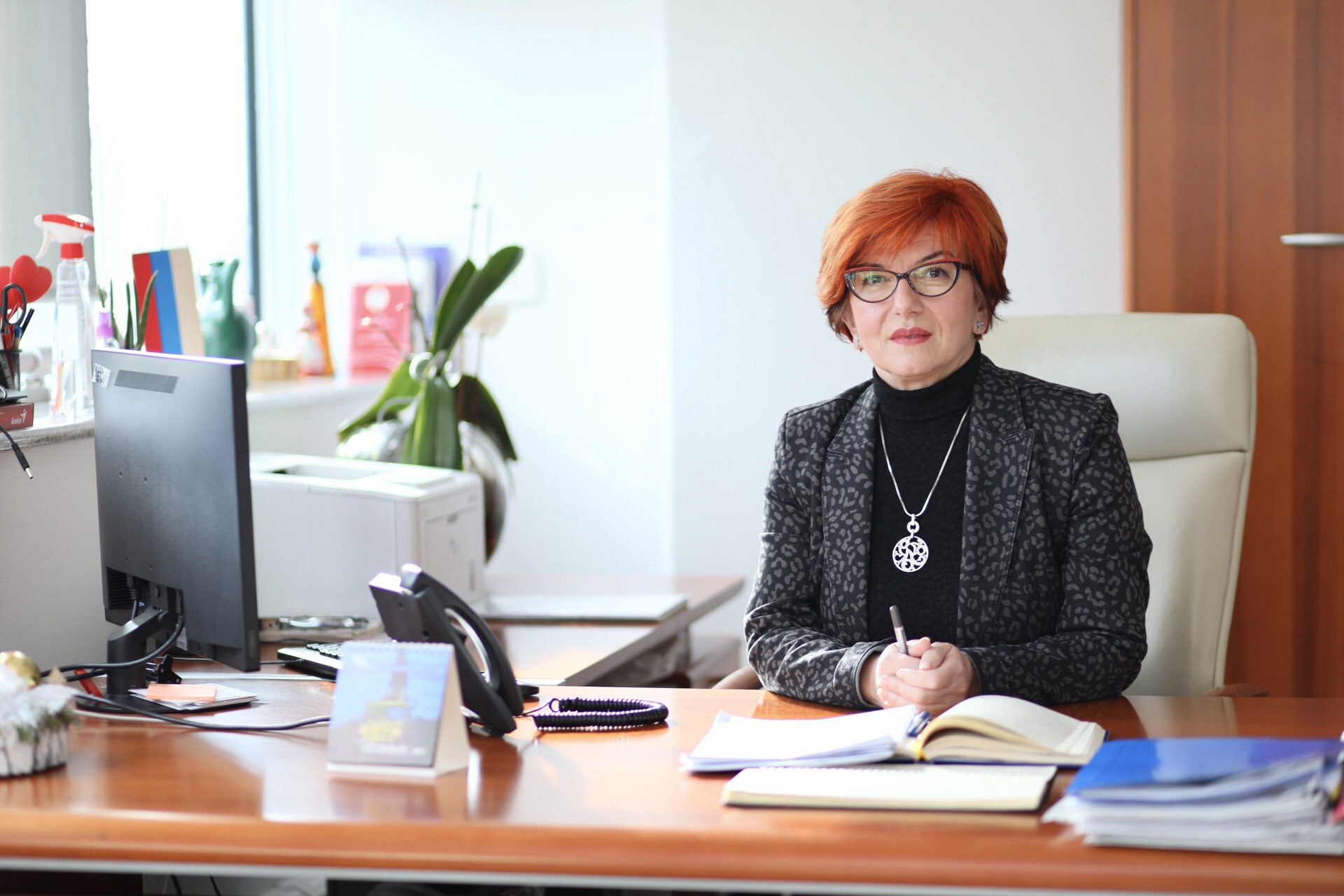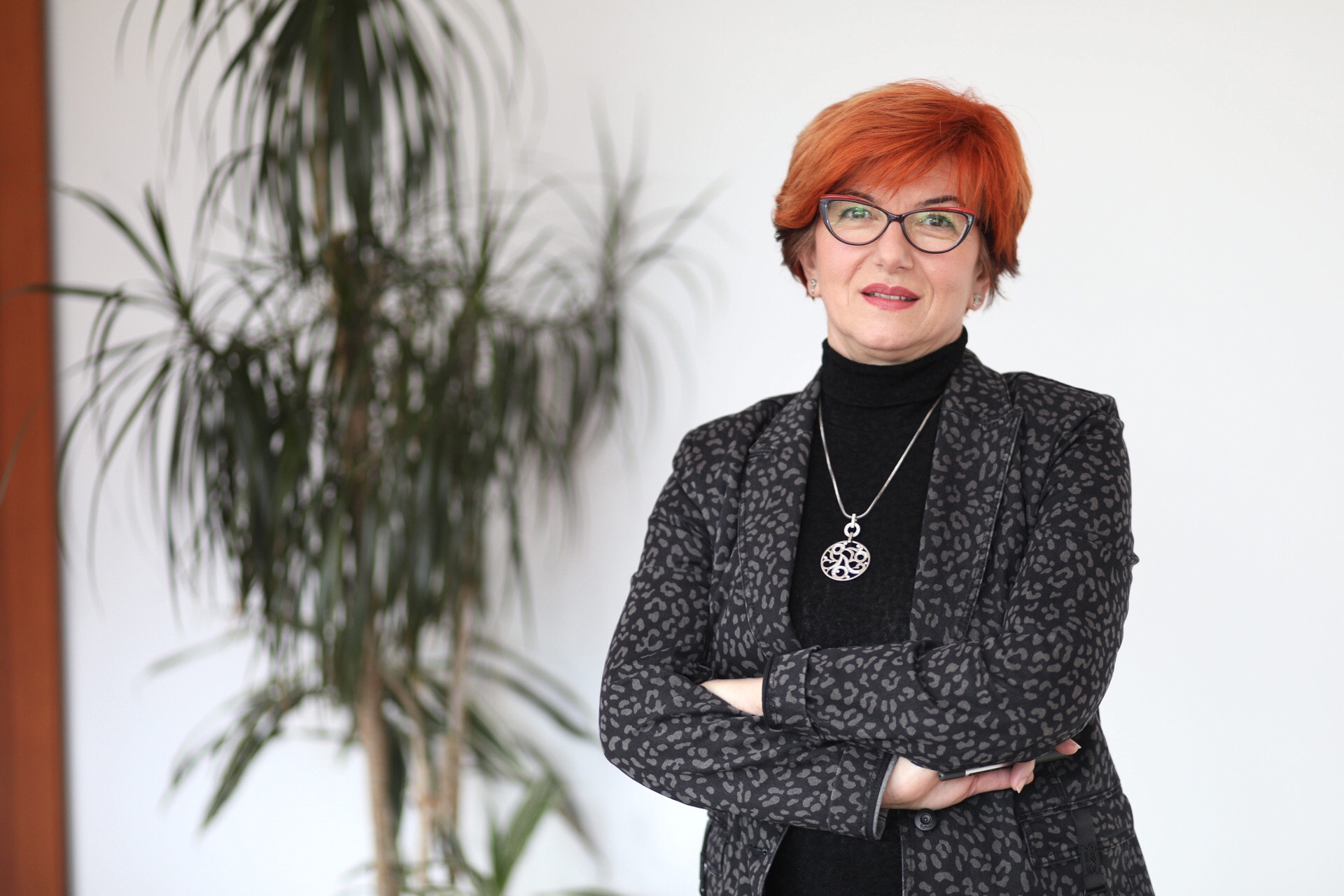The BiH ESAP 2030+ will help protect the environment, provide a critical tool for relevant authorities to achieve environmental sustainability, improve citizen health and contribute to BiH’s EU membership aspirations. During the month of February 2022, government representatives of BiH have shared with us their messages on why the BiH ESAP2030+ is so important for BiH. We had the possibility to talk to Svjetlana Radusin, Assistant Minister for Ecology, Ministry of Physical Planning, Civil engineering, and Ecology in Republika Srpska (RS).
What are the biggest environmental problems that RS is currently facing and how will BiH ESAP 2030+ help solve them?
Air quality, waste management and the growing impact of climate change are the biggest challenges facing Republika Srpska.
This is in line with the 2018 UN Report which shows that, despite the progress it has made, BiH still faces serious environmental challenges, such as air pollution, waste management and wastewater treatment, deforestation, and concerns connected to the impact of hydropower production on water resources and biodiversity and to declaring protected areas.
Air pollution is a topic that has been gaining more and more public attention in the last few years. Interest in the topic of air pollution began to grow with the advent of research and measurements, which puts air pollution in the cities of Republika Srpska, as well as throughout the country in a regional, European and global context. Air pollution in the cities of Republika Srpska with various oxides, primarily sulphur and nitrogen oxides, occurs as a result of burning fossil fuels in individual homes and residential furnaces, but also the impact of traffic and industrial thermal power plants. Therefore, the problem is directly related to the type of energy and the quality of energy used in residential fireplaces, businesses, and other facilities. The problem of air pollution is multisectoral and requires the same approach to solving the problem, with coordinated activities of all relevant and competent institutions, long-term and strategic. Poor air quality is a problem for the environment, but also for public health.
The sectors of agriculture, hydrology, forestry, biodiversity, but also human health, will share the brunt of the impacts of climate change. Droughts, insect invasions and forest fires have significantly affected forest ecosystems in our country. In the long run, climate change can cause the transformation of entire forest ecosystems, changing the layout and composition of our forests. Climate change also affects the growing conditions of certain agricultural crops and the choice of appropriate varieties. In terms of biodiversity, climate change can lead to the loss of existing habitats and the emergence of new species, to the extinction of species that are unable to adapt. The effects of climate change on health are also becoming more pronounced. Republika Srpska and BiH are taking into account the impacts of climate change and the need to reduce the risk of climate change, as well as recognising the importance of contributing to the global reduction of greenhouse gas emissions (GHG), hence they have identified GHG targets at the country level.
With all this in mind, the Ministry of Spatial Planning, Construction and Ecology is convinced that this strategic document, the BiH ESAP, which will include the Strategy for Air Protection and Climate Change, will create conditions for long-term guidelines, action plans and goals to improve air protection, the area of climate change and the protection of the environment as a whole, and thus the health of the population.
With the aim of planning waste management in Republika Srpska, planning documents related to the subject area have already been adopted, these are Waste Management Strategy for the period 2017-2026, and the Republic Waste Management Plan for the period 2019-2029. These laid the foundations for the establishment of an integrated waste management system in Republika Srpska. They will, through the development of the BiH Environmental Strategy and Action Plan 2030+, further improve the instruments of planning the strategic framework for this area.
In fact, protecting the environment and providing enough safe food and water are two key challenges of the twenty-first century for all of humanity, including BiH. The biggest challenge is to mitigate and reduce the impact of climate change and strengthen resilience to climate change, because the consequences of climate change are already imposing the need for radical socio-economic change. Efficient use of natural resources are conditions for our survival on the planet. This includes low carbon emissions, social inclusion, regional cooperation at all levels – from entrepreneurs, academia and the public sector – as well as support for innovation for sustainable development and recognition of new market opportunities.
Currently, both in BiH and around the world, we are facing many challenges. The Covid-19 pandemi and the energy and economic crisis marked this year. How can the Environmental Strategy help us overcome current challenges?
Today, at the time of the Covid-19 pandemic, the issue of caring for human health has brought to the fore the issue of planetary health, i.e., the need for maximum commitment to the protection of all segments of the environment. I remind you that the World Health Organisation warned before the appearance of Covid-19 that climate change will affect the appearance and spread of infectious diseases.
Bosnia and Herzegovina has committed itself to reducing greenhouse gas emissions by 33.2% by 2030, and it is therefore necessary to pay attention to decarbonisation, as a key challenge in the fight against climate change. Therefore, the priority is to use the transition to a low-carbon economy to achieve the goals of sustainable economic development and social cohesion. It is the Environmental Strategy that will give us guidelines on how to improve the quality of life of citizens, now and tomorrow, in ways that will not be harmful to the environment, and how to direct all reforms towards more efficient use of energy and resources, security of supply and environmental responsibility. Environmental protection is an exceptional economic resource that creates great, I would say superior, opportunities for sustainable development. However, this implies the widespread use of renewable energy sources, increasing the number of jobs and investments in the so-called green branches of industry.

Circular economy, as a concept, has become an imperative in the developed countries of the world. Is RS ready to move from a linear to a circular model and what benefits does this transition bring to citizens?
The principles of the circular economy, in fact, imply the creation of an economic product with minimal costs and with minimal impact on the environment.
Our goal must be development based on the principles of the circular economy, however, this requires both knowledge and time.
In today’s modern world, we have the possibility to save resources through green technologies, to recycle, and to use resources efficiently to create new, additional values, create new jobs, and therefore increase the general well-being of the world population.
However, we need to do far more in practice. Awareness of the importance of this topic should first be raised in political structures that make strategic decisions regarding priority sectors of development. At the same time, we need to raise awareness of managers in companies that need to organise themselves at the micro level in such a way as to respect the rules of the green circular economy.
We in the Republika Srpska, and BiH as a whole, still have a relatively preserved, untouched, beautiful nature, which gives us an untapped opportunity for sustainable development. We can foster a green economy that, in completely new ways, provides many jobs in various sectors of the society.
In your opinion, how important is the strengthening of the capacity of the NGO sector and its cooperation with the government sector to improve the environment?
I think that the priority is to return the cooperation of civil society organisations and the government sector to the principles of partnership relations, because we have become a bit too distanced from each other. In general, it is very important to strengthen the capacities and positive influences of all organisations and institutions that contribute to the improvement of environmental protection, but it is necessary to be more honest, open and respectful in mutual cooperation.
Two main principles in the field of environmental protection in Republika Srpska are the principles of public participation and access to environmental information. It starts with the umbrella legal act adopted by the National Assembly of Republika Srpska – the Law on Environmental Protection. These regulations are in harmony with the Aarhus Convention on Access to Information, Public Participation in Decision-Making and Access to Justice in Environmental Matters, as well as with several related directives.
Thus, the public and non-governmental organisations are also involved in the process of drafting laws regulating environmental protection, as well as bylaws. All drafts and working versions of documents are always made available for review and comments, through website postings and public hearings.
As an example, I can mention that the Ministry of Spatial Planning, Construction and Ecology of Republika Srpska is implementing a cross-border project with the Republic of Serbia. There, one of the components is to improve cooperation with environmental NGOs. Together, we plan to improve public campaign and the promotion of open access to information in the field of environmental protection.
BiH is rich in natural beauties and tourist gems. What are your three favourite destinations in BiH that you like to visit and why?
The “Sutjeska” National Park is my favourite destination, without competition, because its natural riches and beauties are the pearl of Southeast Europe.
The oldest and largest national park in Republika Srpska offers a special atmosphere with its forests, mountain pastures, mountain peaks, valleys, numerous rivers and streams. I especially want to mention the eight beautiful lakes, the so-called “Mountain eyes”, that is, tarns or lochs. The mountains of the National Park “Sutjeska” leave a strong impression on me, and I believe Maglic, with the highest peak in Republika Srpska and BiH, and Zelengora, are two of the most beautiful mountains in the Dinarides.
In the heart of the national park is the strict nature reserve Perucica, the best preserved and largest primeval forest in Europe, which is characterized by exceptional diversity of flora and fauna. In the centre of the rainforest is the Skakavac waterfall, which is 75 metres high and a real attraction.
Also, with deep respect and admiration, I always visit the Tjentiste Memorial Complex, which was declared a cultural asset of exceptional importance in 2009.
The interview was published on the Glassrpske.com portal on March 3, 2022.







